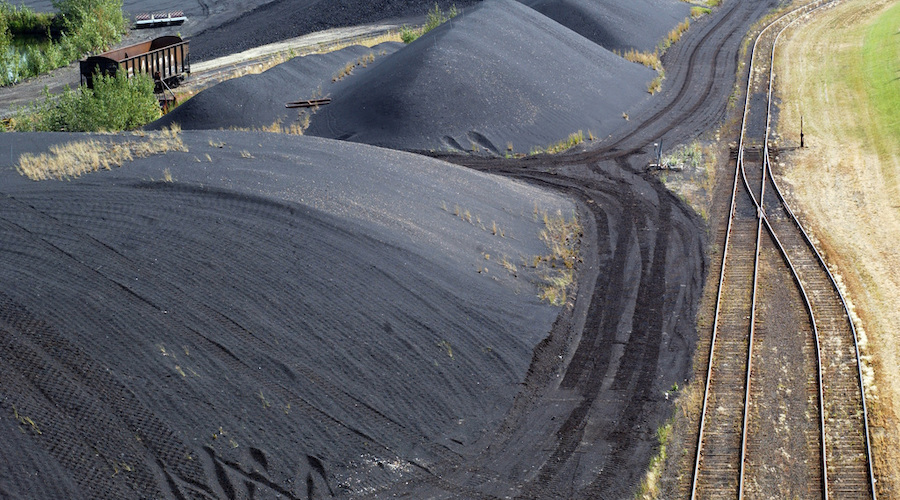Staff Writer | April 16, 2023 |

A stockpile of coal maintained by the base power plant at Eielson Air Force Base in Alaska. (Reference image by The U.S. National Archives, Picryl.)
A recent study by researchers at the Chalmers University of Technology and Lund University shows that the use of coal power is not decreasing fast enough to avoid a temperature rise higher than 2 degrees Celsius by 2050 as established in the Paris Agreement.

“More and more countries are promising that they will phase out coal from their energy systems, which is positive,” Aleh Cherp, co-author of the study, said in a media statement. “But unfortunately, their commitments are not strong enough. If we are to have a realistic chance of meeting the 2-degree target, the phasing out of coal needs to happen faster.”
Cherp and his co-authors analyzed 72 countries’ pledged commitments to phase out their use of the fossil fuel by 2022–2050.
In the best-case scenario, the researchers show that it is possible that the temperature increase will stay at 2 degrees. But that assumes, among other things, that both China and India begin phasing out their coal use within five years. Furthermore, their phase-out needs to be as rapid as it has been in the UK, which is the fastest that has ever happened in a large country, and faster than Germany has promised. This may create inequities which will need to be addressed by international policies.
The scientists also developed scenarios that they consider to be the most realistic. These scenarios indicate that earth is moving towards 2.5–3 degrees of global warming.
“The countries’ commitments are not sufficient, not even among the most ambitious countries. In addition, Russia’s invasion of Ukraine may prevent some countries from phasing out coal as they promised”, Jessica Jewell, co-author of the study, said.
The paper also shows that the 72 countries’ commitments to phase out coal power are similar to each other and in line with historical data for how quickly coal power was phased out in the past.
No comments:
Post a Comment